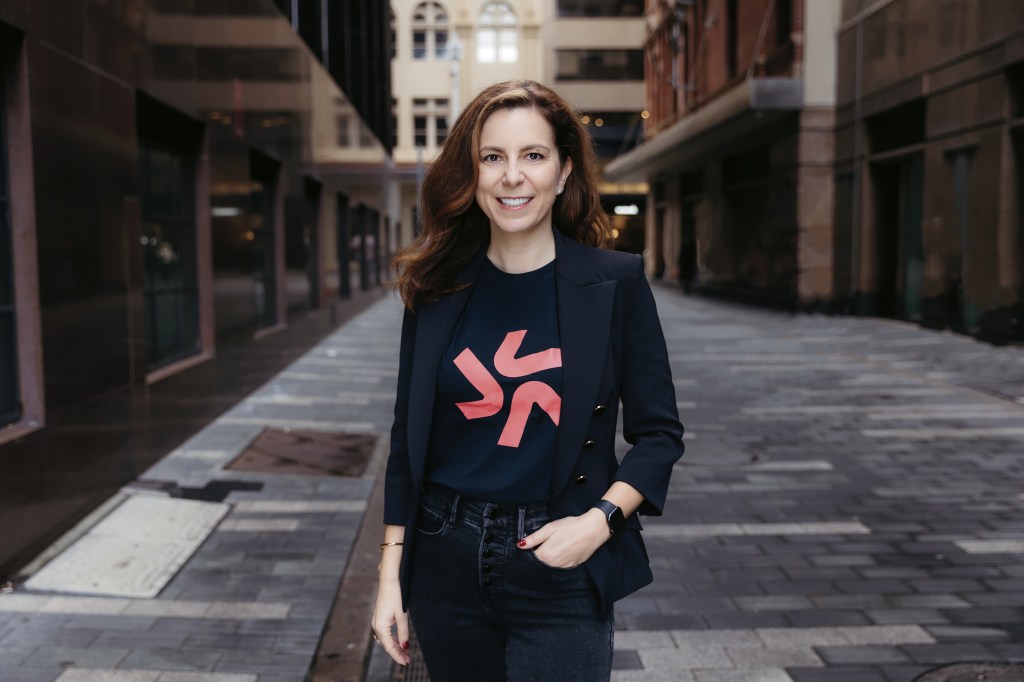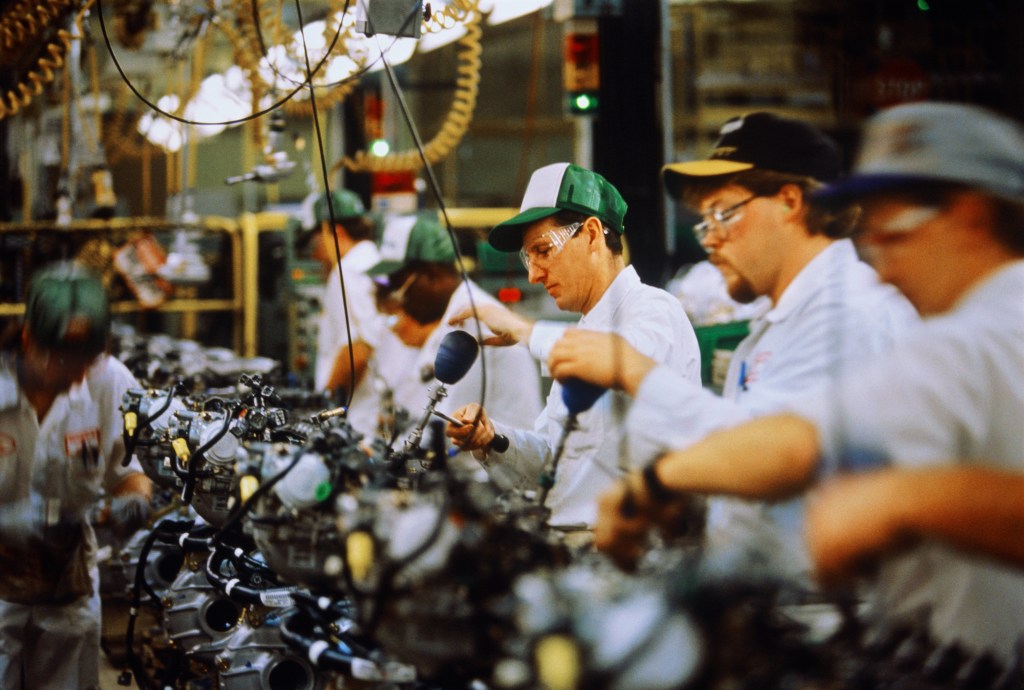With CEO Silvija Martincevic and CFO Emma Seymour at the helm, Deputy became one of Australia’s newest tech unicorns in 2024. Now, the female-led company’s shift work platform powers 1.5 million workers across 375,000 workplaces worldwide – redefining the future of frontline work.
This story was featured in Issue 17 of Forbes Australia. Tap here to secure your copy.

CEO Silvija Martincevic is decked out in designer duds and sits high up in a corner office with views over the financial district of San Francisco. She is a long way from where she started in
life.
“I grew up in Croatia in a family of shift workers,” Martincevic says, her gold jewellery glistening as it reflects the setting Californian sun. “My dad worked for 40 years as a truck driver. My mum was a factory worker. In the village I grew up in, most people were factory workers, which was probably my destiny too.”
However, a university scholarship from the Croatian Rotary Club in 1997 became Martincevic’s ticket out of that small village and set her on an entirely different path. She emigrated to the US, where studying abroad would change the trajectory of her life.
Now at the helm of an Australian-founded, US-grown HR platform for hourly workers, her work is aimed squarely at the kind of folks that Martincevic was raised by.
“Eighty-per cent of workers work on their feet,” she says. “They work in factories, logistics centres, and hospitals and need different technology. That is the community that Deputy serves. We do that today across the globe in 100 countries. We do that for about 40,000 small and mid-sized businesses.”
The technology Martincevic speaks of allows organisations and workers to connect to schedule shifts, document timesheets, communicate on HR matters, comply with labour laws, and process payroll.
Like her boss, Deputy’s CFO Emma Seymour is passionate about the community the company serves.

“We solve very complex problems for both shift workers and the employers and the businesses that employ them,” says Seymour.
“There has been such an under-investment in technology supporting the community we support. There are 2.7 billion shift workers in the world, and roughly 1% of investment goes into tools and solutions that are helping, supporting and empowering them in their work.”
Seymour is working to change that. She oversaw two strategic partner deals last year that pushed Deputy’s valuation into the unicorn realm. The first deal was with Express Employment Professionals, a US staffing firm that has been around for more than 40 years.
“They invested US$25 million and also provided the opportunity for Deputy in terms of additional channels,” says Seymour.
Just one month later, in April 2024, Deputy announced a partnership with Xero that would result in another US$25 million investment.
“On the back of those two deals, we reached unicorn status, and we have maintained profitability for the last couple of years,” says Seymour.
Passing the leadership baton: Founders to the C-suite
It took 14 years for Deputy to reach unicorn status. The company raised a Series B in 2018 in which SquarePeg, founded by Seek entrepreneur Paul Bassat, invested.
“Hourly paid workers account for two-thirds of the global workforce. In the US alone, 107 million people are paid hourly,” Square Peg’s investment notes read.
“What your barista or baggage handler is unlikely to strike up a conversation about is that often, managing their schedule, claiming overtime, swapping shifts or dealing with timesheets can be a total nightmare, and an experience largely still stuck in the dark ages of whiteboards, pen and paper.”

The workforce has evolved significantly since Deputy was founded by a Sutherland-Shire serial entrepreneur in 2010. The one thing that has stayed the same is the significance of people to organisations.
“I would ask my friends and family about the challenges they faced running their business, and it always came down to managing the people,” Deputy co-founder Steve Shelley told Forbes in 2016. “That’s kind of where the concept of Deputy came from.”
Shelley is the grandson of Bert’s soft drink founder, Albert Shelley. He started Deputy with Ashik Ahmed, an employee in his previous business. Ahmed hails from Bangladesh and is a first-generation immigrant to Australia. His first job on Australian shores was flipping burgers at Hungry Jack’s, giving Ahmed an innate understanding of the needs of shift workers.
“I built a platform for Steve Shelley that automated the process of employee scheduling and assisted in tracking and managing attendance at the workplace. The product changed how he ran his business and was referred to as Steve’s ‘deputy,’” the Computer Science graduate told his alma mater, the University of Melbourne, in 2020.
Ahmed became CEO of Deputy in 2017 and built the company into a $100 million ARR beast in 6 years. He stepped down in 2023, when Martincevic was brought in to steer the company and its employees, known as ‘Deputies,’ into its next chapter.
“Steve and Ashik built this wonderful software that took Australia by storm and had amazing growth,” Martincevic says. “I often remind Deputies that Australia’s economy is the size of a 10-mile radius of New York City. It’s a big world out there, and we’re one of the largest companies focused on this space.”
Scaling a company is nothing new to the 44-year-old. Within three years, she took San Francisco-based fintech Affirm from 6,500 customers to over 200,000, and revenue from USD$100 million to USD$1.3 billion within three years.
As chief commercial officer, Martincevic oversaw Affirm’s deals with Amazon, Walmart, and Shopify. The company went public on NASDAQ in 2021, and its value catapulted to more than USD$23 billion.
Asked if she is working toward a Deputy IPO, the CEO says it is possible but not imminent. “This company deserves to go public for sure. But absolutely no plans. We need to scale globally to achieve durability, profitability, and impact. We are in the first innings of that and are continuing to innovate in terms of product.”
The changing face of the shift-working workforce
Effective innovation requires listening to customers’ needs, and Martincevic and Seymour have their ears to the ground.
The 2025 Deputy ‘Big Shift’ report reveals that over the past 12 months, Gen Z has surpassed millennials to become the dominant generation in shift work across all industry sectors. Clear career progression, positive workplace cultures and flexible work arrangements reign supreme for Gen Z.
“When we talk to businesses in Sydney, New York, or San Francisco, the most requested feature is micro shifts. Instead of a shift from 9 to 5, shift workers now want, say, a micro shift from 9 to 11. Then they can take care of their elderly parents, or their children and then go back and work in the afternoon,” says Martincevic.
It is women who are driving that change, the CEO says. They are also spearheading the transition toward ‘poly employment.’ “They want to diversify their income. Twenty per cent of workers on the Deputy platform have two or more jobs. They have gigs.”
“The most requested feature is micro shifts. Say, from 9 to 11. Then they can take care of their elderly parents, or their children and then go back and work in the afternoon.”
Silvija Martincevic, Deputy CEO
Dr. Shashi Karunanethy is the chief economist at Geografia and worked with Deputy on the ‘Big Shift’ research. “We’re seeing an unprecedented number of shift workers holding multiple jobs, a phenomenon we refer to as poly-employment, in response to the cost-of-living crisis.
Females make up 58% of workers working multiple jobs, and the majority of these female workers are young. This generation is using poly-employment not only to navigate rising costs but also to search for sustainable employment, reliable shifts, and financial stability,” says Karunanethy.
That is a call to action for the Deputy C-suite.
“We have completely re-architected our whole technology because we see that younger workers are not working the way their parents used to,” says Martincevic.

The CEO can also see a gap in the market for technology built for people working on their feet.
“Nurses taking care of the elderly. Teachers taking care of children in childcare facilities. Cooks that are cooking in restaurants,” she says. “Workday, Slack, Asana, Salesforce. They are incredible, incredible businesses, but they are built for the 20% of the workforce. People who work at their desks.”
She notes that the AI revolution will touch folks from all walks of life, and the workforce that Deputy serves is digital native.
“When we asked, ‘How are you using ChatGPT?” Forty-seven per cent of Gen Z workers said that ChatGPT, AI, helps them more than their manager. They get more value, coaching, career growth, and learning from AI than they get from their manager,” she says. Martinovic sees opportunity in that revelation from Deputy’s research.
“If you’re an office worker, you go from analyst to senior analyst to VP, right? You know your career progression. If you are a barista, you’re trying to figure out how are you going to be an owner of a coffee shop? There’s no clear progression planning, no clear career growth. And so, shift workers are optimistic about AI because they believe it can help them in career progression, learning, and development.”
The CEO CFO dance
The geographical location of Deputy’s C-suite mirrors that of its customer base. “Nearly 50% of our business is international, with the key markets being the US and the UK,” says Sydney-based Seymour.
“It works really well for us to have our CEO in the US, to have our commercial leader in the US to help scale that side of the business, but also to have leadership in Australia with myself and our chief product officer.”

Seymour spent the first decade of her career as an accountant at a boutique firm in NSW. She became the Women in Banking and Finance risk and governance committee chair in 2017 and spent three years as CFO of Seek-owned recruitment site JobAdder. In January 2022, Deputy came knocking.
“The CFO role has evolved so much beyond what it was traditionally,” says Seymour, noting it used to be all about looking backwards at the financial results. “Now it’s about how do I bring that strategic muscle and focus and anticipate what’s coming? How can I help position the company for what’s around the corner, and how do we win in that space?”
As the only female CFO of an Australian unicorn, Seymour acknowledges that she is an anomaly and says she feels responsible to create pathways for other women to advance in her profession.
“I think the two time zones is our superpower. Emma always gets a start on the week. On her Monday, it’s Sunday in the US.”
Silvija Martincevic, Deputy CEO
2024 research from Deloitte reveals that less than a quarter of ASX100 CFOs are female. Statistics on the private sector show that women make up just 22% of the C-suite. Conversely, 5 out of 7 Deputy C-suite executives are women.
“Eighty per cent of our leadership team is female, including our chief commercial officer and
our chief people officer, and my SVP of strategic finance,” says Seymour.
Having a dispersed leadership team is a strength of the company, Martincevic says. “We have businesses across 100 countries that rely on Deputy every single minute of the day. Someone is always clocking in and out, swapping a shift somewhere, getting paid somewhere,” she says.
“I think the two time zones is our superpower. Emma always gets a start on the week. On her Monday, it’s Sunday in the US. She gets one day of work done by the time I start. Emma is usually my last call every night. I put my kids to bed. Then we do our debrief on everything, and when I wake up the next morning, a lot of that stuff is done.”
Expanding the product suite and access to technology
The Deputy team brought a new product to market in May.
“We heard our customers loud and clear. They wanted a more seamless way to simplify operations, navigate labour compliance, and process payroll – inside Deputy. We listened. And we built it,” says Martincevic.
She says there will be a series of further product announcements this year, and alludes to voice-operated features that allow shift workers to keep their hands free while taking care of HR administrative tasks. AI will continue to innovate Deputy’s products, the CEO says, keeping shift workers at the cutting edge of technology advancement.
“I imagine my mum working in a shoe factory at a sewing machine. She didn’t have transparency on how much she would get paid or what her shift would be like – certainly, no control over her schedule. The message I have for all shift workers, especially women, is that they need to be a part of this conversation about what the future of work looks like. They need to demand the same kind of flexibility and dignity at work that we get.”
Look back on the week that was with hand-picked articles from Australia and around the world. Sign up to the Forbes Australia newsletter here or become a member here.



